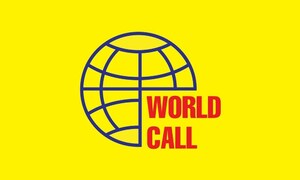The near-zero current account balance is expected to continue, as a deficit of $162 million was posted on July 24. This appears to be the new normal. There has been a slight increase in imports over the past few months, though they remain below $5 billion per month. This growth aligns with the uptick in remittances, which are approaching $3 billion per month, while exports are hovering close to their 12-month average.
This situation is likely to persist, as growth in exports is feeling challenged by the rising energy prices and higher taxation, which are discouraging expansion. The stable PKR and low levels of informal imports (and reduced illegal wealth transfers) are facilitating remittances through formal channels. Any further increase in imports, potentially driven by upcoming rate cuts, could pose risks to macroeconomic stability, particularly in terms of currency stability.
Therefore, the optimal approach is to gradually ease monetary policy and allow inflation to decrease more sustainably while maintaining the current account deficit close to zero. Achieving GDP growth beyond 3 percent may be undesirable under these conditions.

Imports of goods stood at $4.8 billion on July 24, representing a 16 percent increase from the same month last year and a 9 percent rise from the 12-month average. However, this increase is not reflected in major sectors such as petroleum, food, and the adversely impacted transport sector. Petroleum imports are lower due to reduced prices and an influx of diesel from smuggled Iranian channels. Automobile imports are expected to remain low until interest rates fall below 15 percent, although palm oil imports in the food sector are increasing.

Other sectors showed decent growth in July 24 compared to the 12-month average, with the most significant increase in machinery imports (up by 45 percent), particularly in mobile phones. There was also double-digit growth in the metal, textile, and miscellaneous sectors.
Exports in July were slightly lower than both the previous month and the 12-month average. Textile exports were almost at the 12-month average, but industry players are not optimistic about future months.

The trade deficit in goods reached $2.5 billion, which is 20 percent higher than the previous month and 32 percent more than the 12-month average. The deficit growth slowed to 13 percent and 27 percent, respectively, due to continued strong ICT exports, which totaled $286 million on July 24. Companies and individuals are likely to repatriate more money through formal channels due to currency stability and increased allowances for money transfers. However, poor network connectivity and firewalls are causing frustration and reducing business opportunities, especially for freelancers.
The standout performer has been inward remittances, which averaged $3.1 billion over the past three months and were nearly $3 billion on July 24. The strongest performance has come from Dubai, where many Pakistani companies are registering, and many individuals are relocating. Dubai has become a key financial hub for affluent Pakistanis, with those living there and earning money also contributing to remittance growth.
In the short term, the continued growth in remittances provides a silver lining for economic growth, though it will not fully address the country’s economic challenges, including the effects of Dutch disease.























Comments
Comments are closed.